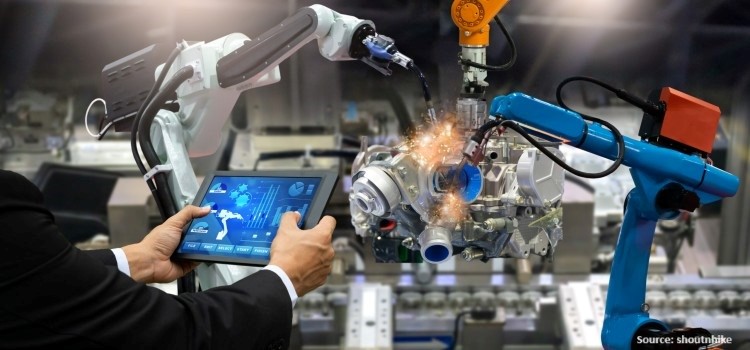
UK Distributed Control System (DCS) Market by Component (Hardware, Software, and Services), by Application (Batch and Continuous Process), by Project Type, (New Construction, Replacement, and Upgrade/Expansion), by End User (Oil & Gas, Chemicals & Refining, Energy & Power, Pulp & Paper, Metals & Mining, Pharmaceutical & Biotech, Food & Beverages, Cement & Glass, Water & Wastewater, and Others) - Opportunity Analysis and Industry Forecast 2024–2030
Industry: Semiconductor & Electronics | Publish Date: 22-Mar-2024 | No of Pages: 155 | No. of Tables: 118 | No. of Figures: 63 | Format: PDF | Report Code : N/A
Market Overview
UK Distributed Control System (DCS) Market was valued at USD 1024 million in 2023, and is predicted to reach USD 1204 million by 2030, with a CAGR of 2.2% from 2024 to 2030. A Distributed Control System (DCS) is a computer-based control system widely used to manage and automate industrial processes. It consists of a network of controllers distributed throughout industrial facilities, allowing for communication and coordination in automating various processes. These systems are applied in various industries, including chemicals, petrochemicals, pharmaceuticals, food and beverages, and power generation.
DCS systems are particularly valuable in large-scale industrial processes where automation and control are crucial, such as in oil refineries, chemical plants, and power stations. They oversee operations like drilling, refining, blending, manufacturing, filtration, and disinfection, ensuring precision, efficiency, and safety.
The use of DCS systems offers several advantages, including improved process control, increased efficiency, enhanced safety, and reduced downtime. DCS achieves this by spreading control functions across multiple controllers, providing redundancy and fault tolerance. This means that even if one controller fails, industrial processes can continue without interruptions.
DCS systems have become essential in modern industrial automation, significantly improving the reliability and efficiency of industrial processes. They also enhance safety by enabling real-time control and process monitoring. They can identify potential safety hazards and promptly alert operators for corrective actions. DCS systems also play a vital role in predictive maintenance, allowing proactive maintenance practices to minimize downtime. They collect and analyze data from sensors, providing valuable insights for continuous process improvement.
UK's Innovation-Driven Industries Propel Widespread DCS Software Adoption
The United Kingdom stands as a prominent user of Distributed Control System (DCS) software across diverse industry sectors, primarily driven by its dynamic and forward-thinking industries, notably chemicals and pharmaceuticals. These sectors are progressively implementing industrial process automation as a strategic response to rising demand and a shortage of skilled labor. The innovative approach of these industries not only fosters efficiency and productivity but also fuels the widespread adoption of DCS software throughout various verticals in the UK.
DCS Revolutionizes the UK Chemical Industry for Smart and Efficient Operations
The diverse chemical industry includes several sub-sectors, including pharmaceuticals, petrochemicals, specialty chemicals, and agrochemicals in the UK, which is the major user of DCS hardware and software to manage & control their plants at the utmost efficiency. DCS also controls various processes such as mixing, reaction, and separation. It helps to ensure consistent quality, efficient operation, and regulatory compliance in production of chemicals.
In addition, the government of UK is strongly committed to revolutionizing their industries by rapidly adopting smart technologies to improve efficiency and effectiveness. Therefore, the government is investing and pushing industrial plants to work in a smarter way. For instance, in September 2020, the government made an official declaration of investing USD 200.64 million in the second phase of "Manufacturing Made Smarter," an initiative designed to foster innovation and connectivity in the manufacturing industry. Thus, this scheme positively impacts the DCS industry, which aims to promote innovation and interconnectivity in the manufacturing sector of the UK.
The Risk Associated with Cybercrimes Hampers the Market Growth in UK.
DCS systems are inclined to cyberattacks as they are networked and computerized. Cybercriminals can gain unauthorized access to DCS systems, compromise sensitive data, and disrupt critical infrastructure, causing significant financial losses and reputational damage. The consequences of a successful cyber-attack on a DCS system can be severe, especially in industries such as power generation, oil & gas, and chemical processing, where disruptions can have significant environmental and public safety implications.
Modular and Flexible DCS Systems: Unlocking Opportunities for Enhanced Automation
The introduction of modular and flexible DCS systems can create ample growth opportunities for DCS market. Traditionally, DCS systems have been highly centralized and monolithic, with large-scale installations that are expensive and complex to install and maintain. However, introduction of modular and flexible DCS systems is changing this paradigm.
Modular systems are designed to be more flexible and scalable, with a modular architecture that allows easy integration with other systems and components. This makes it easier to customize DCS systems to meet specific needs of individual organizations, without the need for costly and time-consuming customization. These systems can help to improve production efficiency, reduce costs, and enhance product quality, which is expected to propel demand for DCS systems across a range of industries, including manufacturing, energy, and process industries.
ABB’s modular-enabled process automation solution that combines an orchestration layer is one of the major examples of modular and flexible DCS system. It also consists of a module layer integrated with module type packages (MTPs) technology for cost-effective modularization. This solution is designed to provide end-users such as mining, pharmaceuticals, and biotech with an automation solution that can fit their applications better than Programmable Logic Controllers (PLCs) and costs less than a traditional DCS.
Competitive Landscape
The UK distributed control system (DCS) industry includes several market players such as Yokogawa Electric Corporation, Hitachi Ltd., Omron Corporation, Emerson Electric Co., Mitsubishi Electric Corporation, ABB Ltd., Rockwell Automation Inc., Honeywell International Inc., Valmet OYJ, Toshiba Corporation, Schneider Electric SE, General Electrics, Ingeteam Corporation S.A, Azbil Corporation, and Siemens AG.
UK Distributed Control System (DCS) Market Key Segments
By Component
-
Hardware
-
Controller
-
I/O
-
Workstation
-
Networking Hardware
-
-
Software
-
Service
-
Integration and Implementation
-
Managed Services
-
Support and Consultation
-
By Application
-
Batch
-
Continuous Process
By Project Type
-
New Construction
-
Replacement
-
Upgrade and Expansion
By End User Industry
-
Oil & Gas
-
Chemicals & Refining
-
Energy & Power
-
Pulp & Paper
-
Metals & Mining
-
Pharmaceutical & Biotech
-
Food & Beverages
-
Cement & Glass
-
Water & Wastewater
-
Others
REPORT SCOPE AND SEGMENTATION:
|
Parameters |
Details |
|
Market Size in 2023 |
USD 1024 Million |
|
Revenue Forecast in 2030 |
USD 1204 Million |
|
Growth Rate |
CAGR of 2.2% from 2024 to 2030 |
|
Analysis Period |
2023–2030 |
|
Base Year Considered |
2023 |
|
Forecast Period |
2024–2030 |
|
Market Size Estimation |
Million (USD) |
|
Growth Factors |
Diverse chemical industry The increasing shortage of skilled labor. |
|
Companies Profiled |
15 |
|
Market Share |
Available for 10 companies |
|
Customization Scope |
Free customization (equivalent up to 80 working hours of analysts) after purchase. Addition or alteration to country, regional, and segment scope. |
|
Pricing and Purchase Options |
Avail customized purchase options to meet your exact research needs. |
Key Players
-
Yokogawa Electric Corporation
-
Hitachi Ltd.
-
Omron Corporation
-
Emerson Electric Co.
-
Mitsubishi Electric Corporation
-
ABB Ltd.
-
Rockwell Automation Inc.
-
Honeywell International Inc.
-
Valmet OYJ
-
Toshiba Corporation
-
Schneider Electric SE
-
General Electrics
-
Ingeteam Corporation S.A
-
Azbil Corporation
-
Siemens AG




 Speak to Our Analyst
Speak to Our Analyst

































